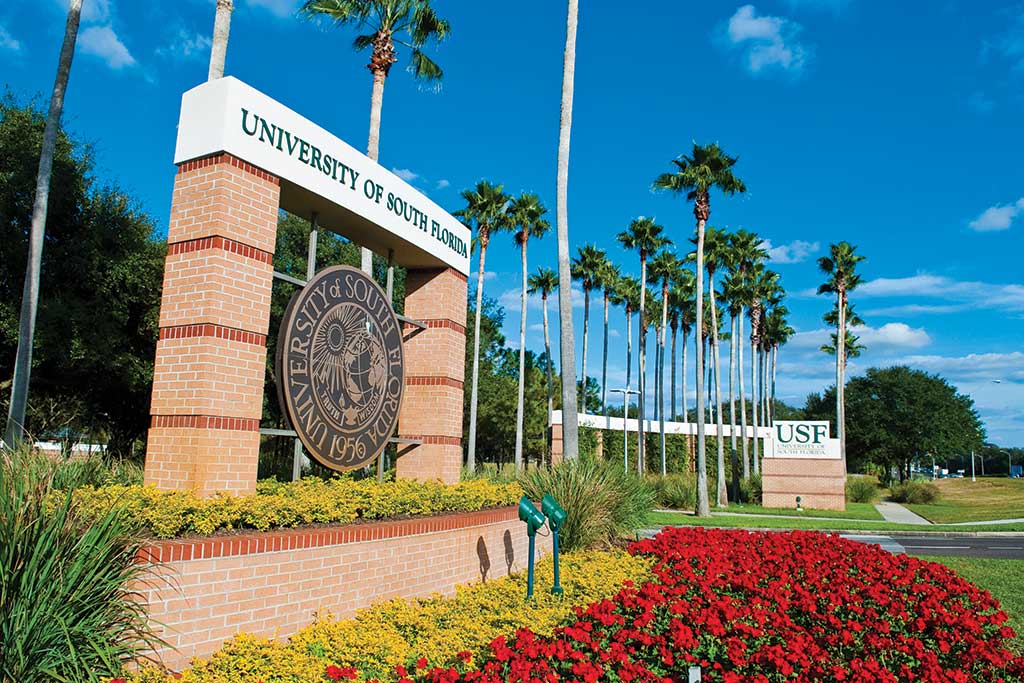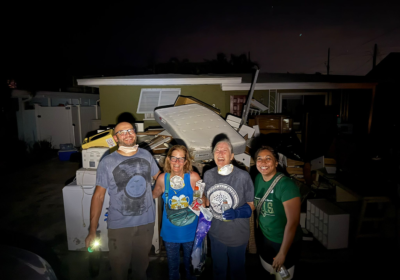USF faculty lawsuit against arbitration ban is fight for ‘justice,’ UFF president says

United Faculty of Florida (UFF) President Andrew Gothard said the lawsuit brought on by three laid-off USF faculty members and UFF is part of a fight for “justice” in higher education in the state.
The lawsuit was filed on Aug. 15 in federal court against the state’s Board of Governors and USF’s Board of Trustees. The suit challenges a clause in Senate Bill 266, which eliminated third-party arbitration in employment disputes.
Third-party arbitration is a way to settle disputes or conflicts between the parties in a contract out of court with the help of a neutral third party or arbitrator, according to the American Arbitration Association.
No hearing dates have been set for the trial at the time of publication, according to Gothard.
Prior to the law, faculty reserved the right to take employment disputes to a third-party arbitrator per the collective bargaining agreement (CBA) between UFF and the university – which is effective from Dec. 17, 2021 until Aug. 7, 2024.
David Braasch, Tamara McLaughlin and Lisana Mohamed – who were laid off effective Aug. 4 – alongside UFF made the decision to sue after they were denied the option of third-party arbitration, according to Gothard.
Employment records obtained by The Oracle through a public records request show that all three employees were laid off due to “adverse financial circumstances; reallocation of resources, reorganization of degree or curriculum offerings or requirements; reorganization of academic or administrative structures; programs or functions; and curtailment or abolition of one or more programs or functions.”
All three faculty members were instructors at INTO USF – a partnership between INTO University Partnerships and USF that guarantees progression into undergraduate and graduate courses for international students – which reportedly closed down this year and is not accepting any new students.
When contacted for a statement, Director of Media Relations at USF Althea Johnson wrote in an email to The Oracle that it is not university practice to comment on pending litigation.
The law makes it so a university president has the final say on employee disputes, which, according to the lawsuit, violated the CBA between UFF and USF. Gothard said this created “an unjust system” for resolving employment disputes in the workplace.
“In many cases, either the university president or someone who works directly for and is answerable to the university president is the person who has violated the employment rights of one of our members,” Gothard said.
“How is it justice if the person who has supposedly done wrong is also the person who gets to decide if they did wrong or not? That’s not justice. That doesn’t give our faculty equitable and fair working conditions in the university.”
When making the decision to file, Gothard said UFF and the plaintiffs considered what is best for the “public good” and the college system. By ensuring positive working conditions for faculty, Gothard said they are fostering good learning conditions for students who go on to improve their communities after graduation.
“We decided that somebody has to stand up for the people of Florida. Somebody has to do what’s right for higher education, and the governor and his supporters in the legislature are clearly not willing to do that kind of work,” he said.
The defendants in the case are “fighting for” the right to neutral arbitration as the ban is a “detrimental attack on the rights of Floridians to negotiate and to advocate and collectively bargain their working conditions,” according to Gothard. He said removing it would create an environment where faculty and employees have no power to enforce their contracts.
“If one person can unilaterally take away your rights, then do you actually have rights to begin with?” Gothard said.
In the long run, Gothard said the ban could also cause faculty to leave the state. He said professors will go “to other places with better opportunities and better working conditions.”
“We would see a dramatic brain drain if these collective bargaining agreements are no longer enforceable across the university system,” Gothard said.
The lawsuit only challenges the arbitration ban within the law and does not challenge it in its entirety. In addition to the ban, SB 266 places limits on diversity, equity and inclusion initiatives at universities and institutes a Board of Governors comprehensive post-tenure review every five years for faculty – along with the already existing yearly university-level reviews.
Concern regarding the post-tenure review sparked as it was conjoined with regulations regarding critical race theory and other topics. Some faculty worried that the legislation would lead to undue political influence in higher education.
The defendants’ ideal result would be to have the bill’s arbitration clause struck down, he said, and to ensure CBAs are “adequately enforced.”
“True justice is really the importance of this, right? You can’t have justice if the people who are accused of wrongdoing get to decide whether they did anything wrong. That’s not justice,” he said. “And the entirety of our legal system, I think recognizes that it’s not justice. So that’s what we’re fighting for here with this lawsuit.”







